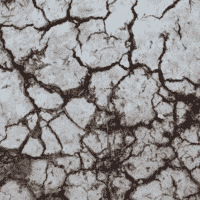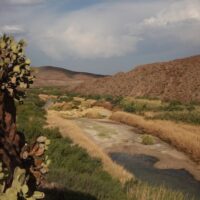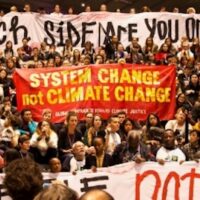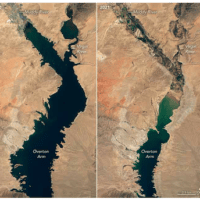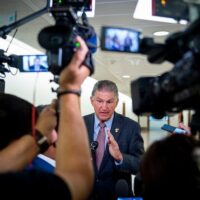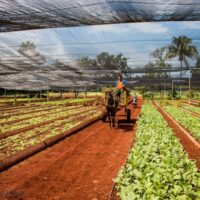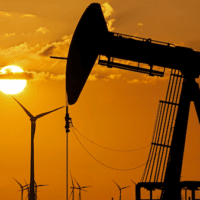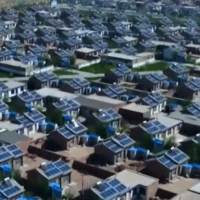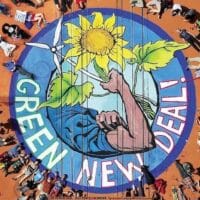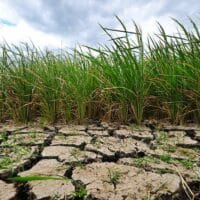-
Europe dries up
Scenes and pictures have been circulating of broken earth, lacking moisture, cracked and yearning. But these are not from traditional drought-stricken parts of the planet, where the animal carcass assumes near totemic power amidst dry riverbeds or desert expanses.
-
Mexican drought spurs a South Texas water crisis
Reservoirs in the Rio Grande Valley are running dry—sparking emergency water conservation measures.
-
Class struggle or degrowth?
Without class struggle the emancipatory potential of degrowth will fail to be realized. A revolutionary pedagogy can help to unify them.
-
There are ‘no real consequences’ for toxic emissions events
In some cases, these “chemical releases” aren’t illegal. In others, state regulators give polluters the benefit of the doubt.
-
Climate crisis poses stark choice: Socialism or Extinction
In his latest book, Socialism or Extinction: The Meaning of Revolution in a Time of Ecological Disaster, Martin Empson neatly lays out his argument as to why the climate crisis cannot be solved under capitalism.
-
How private corporations stole the sea from the Commons
For most of human history, the oceans have been seen as a global commons, the benefits and resources of which belong to us all in equal measure. But our seas–and the marine environment as a whole–are being ravaged by exploitation for corporate profit. The result is a social, economic and ecological crisis that threatens the very life support system of the Earth.
-
Power: A re-envisaged state and energy justice
Our contemporary era of perpetual crises demands, we contend, a critical reappraisal of the state’s potential role, to supplant the predominant market-led responses to crisis, to advance a more equitable society. Historically, all major theories of the state—liberal and radical—have been generated in tumultuous eras.
-
America’s biggest reservoirs hit by dead pool jitters
Hoover Dam’s Lake Mead is dangerously close to dead pool status for the first time since construction in the mid 1930s. A vicious hammering drought sequence for over two decades throughout the West threatens to bring America’s biggest water reservoir to its knees.
-
Inside the Democrats’ climate deal with the devil
The new climate package furthers the U.S.’ most profligate pastimes: drilling oil and driving big cars.
-
Reaching a balance with wild species
The global biodiversity crisis is one of the great threats to planetary health.
-
Canada could learn from Cuba’s sustainable agriculture
Cuba has more than 380,000 urban farms producing 1.5 million tons of vegetables each year.
-
To save the Planet, we must choose
When Exxon’s CEO is celebrating, you know there’s a problem. But there’s also a solution.
-
China’s farmers embrace rooftop solar power
China has vowed to accelerate the installation of clean energy. Rooftop solar installations have emerged as a major force to achieve that. Nearly 53 gigawatts of solar capacity were added in 2021, with more than half coming from rooftop installations.
-
Biden’s staff sounds climate alarm — about Biden
A letter obtained by The Lever shows the call for climate action is now coming from inside the administration.
-
European states commit to climate inaction as heat wave begins to recede
The heat wave devastating southern and western Europe gradually began to recede yesterday, as violent storms brought cooler weather across parts of France and Britain. The heat wave continued in southern Europe, with temperatures close to 40°C across much of southern Spain and Italy, and wildfires are still burning across the region.
-
“Neither liberal nor social democratic policies have a structured approach to understanding imperialism, including its ecological history”
Alejandro Pedregal – in conversation with Max Ajl
-
Existing climate mitigation scenarios perpetuate colonial inequalities
The core countries of the Organisation for Economic Co-operation and Development (OECD) and the rest of Europe (collectively referred to here as the Global North) use on average about 130 gigajoules of energy per capita each year, nearly ten times more than what low-income countries use (13·4 GJ/capita).
-
Greenland threatens
It rained for 9 hours at Summit Station/Greenland, 10,530’ elevation.
-
Heat waves tied to Big Energy capitalism
The population of the world is enduring crises from climate change that, until recently, climatologists thought may only happen decades from now.
-
The capitalist solution to ‘save’ the planet: make it an asset class & sell it
John Bellamy Foster explains the capitalist ‘solution’ master-minded by global finance to resolve the imminent environmental crisis: create a multi-quadrillion dollars worth of assets on the back of everything nature does and expropriate it from the global commons to make a profit. Worse still: it is already happening.

